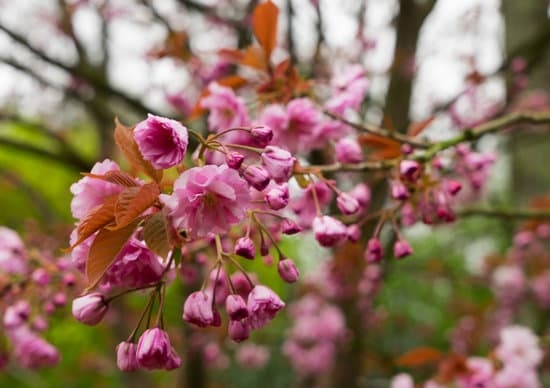Landscaping ideas for small dog friendly gardens are essential for pet owners looking to create a safe and secure space for their furry friends. From choosing the right plants to incorporating play areas, there are many ways to make your garden a welcoming environment for both you and your beloved canine companion.
One key aspect of designing a dog-friendly garden is maximizing limited space with creative solutions like vertical gardens and raised beds. These features not only help save space but also provide opportunities for dogs to explore and interact with their surroundings in a safe manner. Additionally, incorporating pathways and play areas specifically designed with dogs in mind can enhance their outdoor experience while keeping them entertained.
When selecting plants for your small dog-friendly garden, it’s crucial to choose pet-friendly options that are safe for dogs. By carefully selecting vegetation that is non-toxic and easy to maintain, you can ensure that your furry friend can roam freely without the risk of encountering harmful foliage.
Furthermore, adding personal touches such as customized dog houses and pet-friendly decor can create a cozy atmosphere where both you and your dog can relax and enjoy the great outdoors together.
Maximizing Limited Space With Vertical Gardens and Raised Beds
When it comes to landscaping ideas for small dog-friendly gardens, incorporating vertical gardens and raised beds can be a game-changer. Not only do these elements add visual interest to your outdoor space, but they also maximize the limited space available in a small garden. Vertical gardens allow you to grow plants upwards, utilizing walls or structures to create a lush green backdrop for your furry friend to enjoy.
Vertical Gardens
Vertical gardens are a great way to add greenery to your small dog-friendly garden without taking up valuable floor space. You can use hanging planters, trellises, or wall-mounted planters to create a stunning display of cascading foliage. Consider planting pet-safe plants like spider plants, Boston ferns, or African violets that can thrive in vertical garden settings and provide a safe environment for your four-legged companion.
Raised Beds
Raised beds are another excellent option for maximizing limited space in small dog-friendly gardens. Not only do they help with organization and accessibility for gardening tasks, but they also provide an added layer of protection for both your plants and pets.
By raising the planting area off the ground, you can prevent curious dogs from trampling or digging up delicate flowers or vegetables. Additionally, raised beds can serve as a focal point in your garden design, adding depth and texture to the overall aesthetic.
Incorporating vertical gardens and raised beds into your small dog-friendly garden not only adds functionality but also enhances the beauty of your outdoor space. With careful planning and selection of pet-safe plants, you can create an inviting and safe environment for both you and your furry friend to enjoy year-round.
Choosing Pet-Friendly Plants That Are Safe for Dogs
When it comes to landscaping ideas for small dog-friendly gardens, choosing pet-friendly plants that are safe for dogs is essential. It’s important to create a green space that not only looks beautiful but also ensures the safety of your furry friends. There are several plants that are known to be safe for dogs, including marigolds, sunflowers, and petunias. These colorful and vibrant options can add a pop of color to your garden while keeping your pets safe.
Non-Toxic Plants for Dogs
Some common non-toxic plants that you can consider for your small dog-friendly garden include lavender, rosemary, and basil. Not only do these plants smell wonderful, but they also have properties that are soothing for both humans and canines.
Additionally, herbs like parsley and mint can serve as natural breath fresheners for your furry friends. Incorporating these plants into your garden will not only enhance the aesthetic appeal but also provide a safe environment for your dogs to roam around.
Avoiding Toxic Plants
On the other hand, there are several toxic plants that should be avoided when designing a dog-friendly garden. Plants like lilies, azaleas, and daffodils can be harmful or even fatal to dogs if ingested.
It’s crucial to research and identify any potentially toxic plants in your garden before introducing them to ensure the well-being of your pets. By carefully selecting non-toxic plants and steering clear of toxic ones, you can create a beautiful landscape that is both visually appealing and safe for your beloved canine companions.
Incorporating Dog-Friendly Pathways and Play Areas
When designing a small dog-friendly garden, incorporating pathways and play areas that cater to your furry friend’s needs is essential. This not only provides them with physical activity and stimulation but also creates a safe environment for them to roam around freely. Here are some landscaping ideas for small dog-friendly gardens:
- Create designated pathways: Define walking paths or trails within your garden using materials like pea gravel, mulch, or stepping stones. These pathways not only guide your furry friend around the garden but also help protect your plants from being trampled on.
- Install a fenced play area: If space allows, consider setting up a fenced play area where your dog can safely run and play off-leash. Use pet-friendly fencing material such as picket fences or decorative metal panels to ensure their safety and containment.
- Incorporate interactive elements: Integrate interactive features such as tunnels, hurdles, or balance beams into the design of your garden to encourage physical activity and mental stimulation for your dog. You can easily create homemade agility equipment using PVC pipes or wooden planks.
In addition to creating pathways and play areas, it’s important to consider the overall layout of your garden to ensure that it is both aesthetically pleasing and functional for both you and your furry companion. By incorporating these landscaping ideas tailored for small dog-friendly gardens, you can create a harmonious outdoor space that meets the needs of both pets and pet parents alike.
Designing a Relaxing Oasis With Water Features and Shade
Designing a relaxing oasis in your small dog-friendly garden can provide a peaceful retreat for both you and your furry friend. One way to achieve this is by incorporating water features that can create a soothing atmosphere.
A small pond or a fountain can not only add visual interest to your garden but also provide a source of hydration for your pets. Ensure that the water feature is safely designed to prevent any accidents, especially if you have curious dogs around.
In addition to water features, providing ample shade is essential for creating a comfortable environment for your pets. Planting trees that provide shade or installing umbrellas and pergolas can offer relief from the sun’s harsh rays. This shaded area can also serve as a cool spot for your dogs to relax during hot days. Consider creating cozy seating areas under these shaded spaces where you and your furry companions can unwind together.
To further enhance the tranquility of your garden oasis, consider adding a variety of plants that thrive in shaded areas. Incorporate ferns, hostas, and other shade-loving plants to create a lush and inviting atmosphere.
You can also strategically place rocks and boulders around these plants to add texture and visual appeal to the space. Remember to choose pet-friendly plants that are safe for dogs, such as lavender, rosemary, and sunflowers, to ensure a healthy environment for both you and your furry friends amidst your landscaping ideas for small dog friendly gardens list.
- Consider adding water features like ponds or fountains
- Create shaded areas with trees, umbrellas, or pergolas
- Incorporate shade-loving plants like ferns and hostas
- Include rocks and boulders for texture
Building a DIY Dog Play Zone With Dog Toys and Agility Equipment
When it comes to landscaping ideas for small dog-friendly gardens, one creative and practical option is to build a DIY dog play zone complete with toys and agility equipment. This designated area provides your furry friend with a space to exercise, play, and have fun in the comfort of your own backyard. By incorporating different elements such as tunnels, ramps, hurdles, and hoops, you can create a stimulating environment that challenges your dog both physically and mentally.
To start building your DIY dog play zone, consider using materials that are safe and durable for outdoor use. For example, PVC pipes can be repurposed to create weave poles or jumps, while wooden crates can serve as platforms or tunnels for your dog to navigate through.
You can also add sensory elements like squeaky toys or textured surfaces to engage your dog’s senses during playtime. Additionally, make sure to establish boundaries within the play zone to prevent your pet from wandering off into other areas of the garden.
Incorporating agility equipment not only provides entertainment for your dog but also helps improve their physical coordination and mental sharpness. Training your dog to navigate through obstacles can strengthen the bond between you and your pet while promoting exercise and overall well-being. With some creativity and effort, you can transform a small corner of your garden into a dynamic dog play zone that enhances both your landscaping design and your furry friend’s quality of life.
| DIY Dog Play Zone Materials | Examples |
|---|---|
| PVC Pipes | Weave Poles or Jumps |
| Wooden Crates | Platforms or Tunnels |
| Squeaky Toys | Engage Senses During Playtime |
Implementing Low-Maintenance Landscaping Solutions for Busy Pet Parents
For busy pet parents looking to create a dog-friendly garden without the hassle of constant upkeep, opting for low-maintenance landscaping solutions can be a game-changer. One effective way to achieve this is by incorporating artificial turf in your garden space.
Artificial grass provides a lush green look without the need for mowing, watering, or fertilizing, making it the perfect choice for those with limited time for garden maintenance. Additionally, artificial turf is durable and resistant to digging, ensuring that your furry friend can enjoy playtime without causing damage to your outdoor space.
Another low-maintenance landscaping solution for pet parents is xeriscaping. This environmentally friendly approach to landscaping involves using drought-tolerant plants that require minimal water and maintenance.
By choosing native plants that are well-suited to your climate, you can create a beautiful and sustainable garden that thrives with little intervention. Xeriscaping not only saves time and effort but also reduces water consumption, making it a practical choice for busy pet parents who want an eco-friendly and dog-friendly garden.
In addition to artificial turf and xeriscaping, incorporating hardscaping elements such as gravel pathways, stone patios, or wooden decks can help minimize maintenance while providing a functional and attractive design aesthetic. Hardscaping features are durable, easy to clean, and resistant to wear and tear from pets, making them ideal choices for creating a low-maintenance yet stylish outdoor living space.
By combining artificial turf, xeriscaping, and hardscaping elements in your garden design, you can achieve a beautiful and pet-friendly landscape that requires minimal upkeep, allowing you more quality time to enjoy with your furry companion.
| Landscaping Solution | Benefits |
|---|---|
| Artificial Turf | No mowing, watering or fertilizing required; resistant to digging |
| Xeriscaping | Drought-tolerant plants reduce water consumption; minimal maintenance needed |
| Hardscaping Elements | Durable, easy to clean materials; resistant to wear from pets |
Adding Personal Touches With Customized Dog Houses and Pet-Friendly Décor
In conclusion, creating a small dog-friendly garden that is both safe and enjoyable for your furry friend can be achieved through thoughtful and strategic landscaping. By incorporating elements such as vertical gardens, raised beds, pet-friendly plants, pathways, play areas, water features, and shade, you can maximize the limited space available while ensuring a space that is both functional and aesthetically pleasing.
Additionally, building a DIY dog play zone with toys and agility equipment can provide endless hours of entertainment for your canine companion.
When designing your small dog-friendly garden, it’s essential to prioritize safety by choosing plants that are non-toxic to dogs and avoiding any potential hazards in the design. Implementing low-maintenance landscaping solutions can also make it easier for busy pet parents to maintain their outdoor space while still providing a safe environment for their four-legged family members to enjoy.
Additionally, adding personalized touches such as customized dog houses and pet-friendly decor can further enhance the appeal of your garden and make it feel like a special retreat for both you and your beloved pet.
Overall, with some creativity and careful planning, landscaping ideas for small dog-friendly gardens can create a harmonious outdoor space where you and your furry friend can relax, play, and enjoy quality time together. Whether you choose to DIY some agility equipment or simply add a cozy spot for your pet to rest in the shade, customizing your garden with your four-legged companion in mind will ultimately lead to a happier and healthier environment for everyone involved.
Frequently Asked Questions
What Kind of Landscaping Is Best for Dogs?
The best landscaping for dogs usually includes a balance of green space and durable surfaces. Grass or turf can be ideal for playtime, while adding features like paths or rocks can create variety.
What Is the Best Surface in Garden for Dogs?
When it comes to choosing the best surface in a garden for dogs, considerations such as durability, cleanliness, and comfort are important. Surfaces like artificial grass, gravel, or specially designed pet-friendly turf can be beneficial.
Is Mulch or Rocks Better for Dogs?
Both mulch and rocks have their own advantages when it comes to landscaping for dogs. Mulch can provide a softer surface for them to walk on and is less harsh on paws, while rocks are more durable and easier to clean up after pets. Ultimately, the choice may depend on your specific needs and preferences.

Welcome to my gardening blog! I am passionate about plants and enjoy sharing my knowledge and experiences with others. In this blog, I will write about everything related to gardening, from tips on how to get started to updates on my own garden projects.





